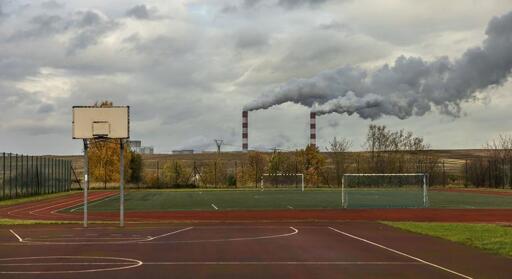- 17 Posts
- 7 Comments
Wildfires and Climate Change
Begum and Mobin (2025) conclude that “Canada, China, Japan, India, Indonesia and South Korea will lag behind their targets with more than 10% of a shortage from their target” (p. 13), despite Canada’s commitment to reduce emissions “by at least 40–45% below 2005 levels” by 2030 (Government of Canada, 2025, para. 2).Meanwhile, the climate crisis is already impacting Canadians. As cited in Burton (2023), Hanes et al. (2019) found that “spring wildfires seem to be on the increase” (p. 5983), and Burton warns that these fires “often defy control” (p. 5983), threatening both ecosystems and communities. Jain et al. (2024) describe the 2023 wildfire season as “unprecedented in its scale and intensity,” noting that “anthropogenic climate change enabled sustained extreme fire weather conditions” (p. 1). The season “burned approximately 15 million hectares—more than seven times the national average—and exposed millions to hazardous air quality” (Jain et al., 2024, p. 2).
References
Begum, A. M., & Mobin, M. A. (2025). A machine learning approach to carbon emissions prediction of the top eleven emitters by 2030 and their prospects for meeting Paris agreement targets. Scientific Reports, 15(1), Article 19469. https://doi.org/10.1038/s41598-025-04236-5Burton, P. J. (2023). Understanding spring wildfires in Canada’s northern forests. Global Change Biology, 29(21), 5983–5985. https://doi.org/10.1111/gcb.16879
Government of Canada. (2025, February 12). Canada’s 2035 emissions reduction target. https://www.canada.ca/en/services/environment/weather/climatechange/climate-plan/2035-emissions-reduction-target.html
Jain, P., Barber, Q. E., Taylor, S. W., Whitman, E., Castellanos Acuna, D., Boulanger, Y., Chavardès, R. D., Chen, J., Englefield, P., Flannigan, M., Girardin, M. P., Hanes, C. C., Little, J., Morrison, K., Skakun, R. S., Thompson, D. K., Wang, X., & Parisien, M.-A. (2024). Drivers and impacts of the record-breaking 2023 wildfire season in Canada. Nature Communications, 15(1), Article 6764. https://doi.org/10.1038/s41467-024-51154-7

 3·12 天前
3·12 天前Wildfires and Climate Change
Begum and Mobin (2025) conclude that “Canada, China, Japan, India, Indonesia and South Korea will lag behind their targets with more than 10% of a shortage from their target” (p. 13), despite Canada’s commitment to reduce emissions “by at least 40–45% below 2005 levels” by 2030 (Government of Canada, 2025, para. 2).Meanwhile, the climate crisis is already impacting Canadians. As cited in Burton (2023), Hanes et al. (2019) found that “spring wildfires seem to be on the increase” (p. 5983), and Burton warns that these fires “often defy control” (p. 5983), threatening both ecosystems and communities. Jain et al. (2024) describe the 2023 wildfire season as “unprecedented in its scale and intensity,” noting that “anthropogenic climate change enabled sustained extreme fire weather conditions” (p. 1). The season “burned approximately 15 million hectares—more than seven times the national average—and exposed millions to hazardous air quality” (Jain et al., 2024, p. 2).
References
Begum, A. M., & Mobin, M. A. (2025). A machine learning approach to carbon emissions prediction of the top eleven emitters by 2030 and their prospects for meeting Paris agreement targets. Scientific Reports, 15(1), Article 19469. https://doi.org/10.1038/s41598-025-04236-5Burton, P. J. (2023). Understanding spring wildfires in Canada’s northern forests. Global Change Biology, 29(21), 5983–5985. https://doi.org/10.1111/gcb.16879
Government of Canada. (2025, February 12). Canada’s 2035 emissions reduction target. https://www.canada.ca/en/services/environment/weather/climatechange/climate-plan/2035-emissions-reduction-target.html
Jain, P., Barber, Q. E., Taylor, S. W., Whitman, E., Castellanos Acuna, D., Boulanger, Y., Chavardès, R. D., Chen, J., Englefield, P., Flannigan, M., Girardin, M. P., Hanes, C. C., Little, J., Morrison, K., Skakun, R. S., Thompson, D. K., Wang, X., & Parisien, M.-A. (2024). Drivers and impacts of the record-breaking 2023 wildfire season in Canada. Nature Communications, 15(1), Article 6764. https://doi.org/10.1038/s41467-024-51154-7

 1·14 天前
1·14 天前Message on the House Of Commons website 2025-09-09: “Between 8:00 a.m. EDT on September 2 and 12:00 p.m. EDT on September 3, 2025, the E-petitions system experienced technical issues that may have prevented some signatures from being recorded. If you signed a petition during this time and if you have not received a confirmation request email, please re-attempt to sign the petition. The system will notify you if you’ve already signed, so duplicate signatures are not possible. We appreciate your understanding in this situation.”

 2·19 天前
2·19 天前Wonderful, thank you timberwolf1021.

 1·20 天前
1·20 天前Hi Lamda,
Thank you for your interest. Not sure, but access to this petition may be georestricted to Canada. Meaning if you are using a proxy, VPN, or are outside of the country you may lack access.
If you are in Canada, then it might be an error with the link/site. You can try navigating to https://www.ourcommons.ca/en (link to House of Commons of Canada website) -> Petitions -> Search -> Petitions open for signature and search “e-6728”. To sign the petition tap/left-click “e-6728”-> tap/click “Sign the petition” -> Enter details -> tap/click “SIGN” -> view email for confirmation link -> navigate to the confirmation page.
Another thing that may help is signing the petition in incognito mode in case of caching issues.
Note the House of Commons is a government site and petitions there are free to sign.











Begum, A. M., & Mobin, M. A. (2025). A machine learning approach to carbon emissions prediction of the top eleven emitters by 2030 and their prospects for meeting Paris agreement targets. Scientific Reports, 15(1), Article 19469. https://doi.org/10.1038/s41598-025-04236-5
Government of Canada. 2025. Greenhouse gas emissions. https://www.canada.ca/en/environment-climate-change/services/environmental-indicators/greenhouse-gas-emissions.html
NASA. 2025. Methane. https://climate.nasa.gov/vital-signs/methane/?intent=121
Papies, E. K., Nielsen, K. S., & Soares, V. A. (2025). Health psychology and climate change: time to address humanity’s most existential crisis. Health Psychology Review, 19(3), 463–493. https://doi.org/10.1080/17437199.2024.2309242
Popovski, V. (2024). Climate Change as an Existential Threat: Translating Global Goals into Action. Environmental Policy and Law, 54(2–3), 127–139. https://doi.org/10.3233/EPL-239025